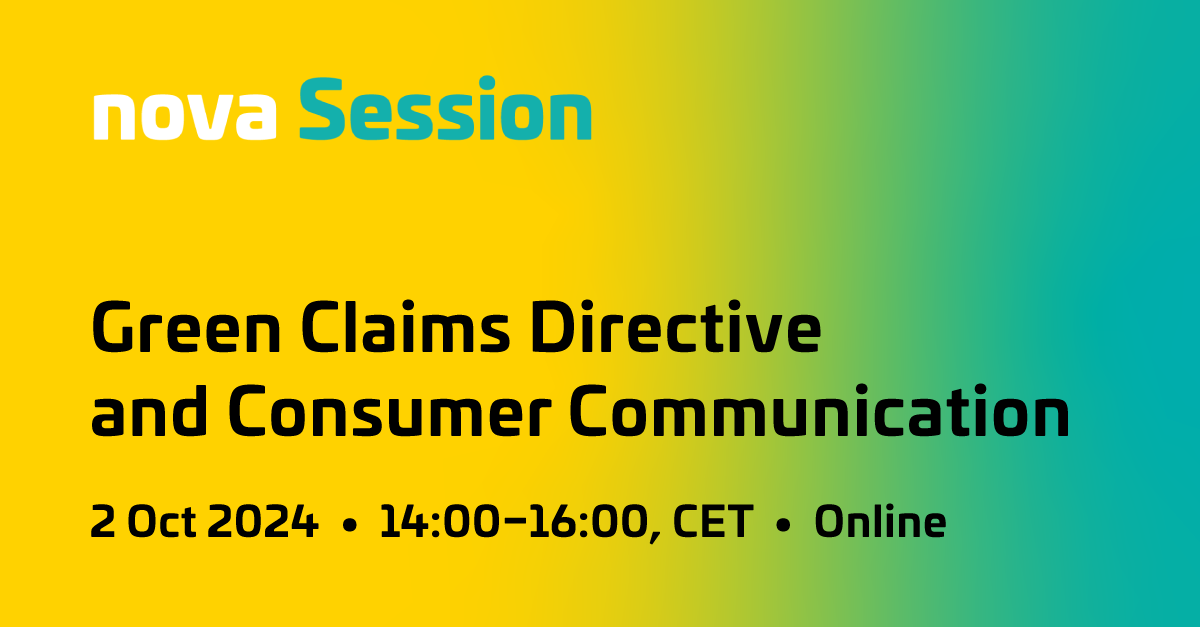
Imagine, someone is looking for a new car. Nowadays, they probably want an electric car (environmentally friendly) that is big enough for luggage and perhaps children (size), can take them to other cities or countries (range), has some extra features (comfort), isn’t too heavy (materials) and is still affordable (price). This task can take them several weeks, if not months, to complete. In fact, this is a typical buyer’s dilemma that many of us can relate to. When you want to do or to buy something sustainable, you are faced with a lot of information and choices, often conflicting.
The customer journey is fragile
In marketing, the customer journey is usually described as a four-stage process: first you create awareness, letting your potential customers know that your product or service simply exists. Then you try to get them interested. Could this be an offer that especially meets their needs? If all goes well, your customer will start to see your offer as a potential solution to their problem. This brings us to conversion and action, which means that customers need to take action by requesting more information or by purchasing your product. If customers are happy with what they get, they will usually start to become a little more loyal to you – knowing that you have offered the best product or service at the best market conditions. They are more likely to consider your company for their next purchase.
Why sustainability complicates decision-making
Incorporating sustainability considerations into purchasing decisions often makes things a little bit more complicated. Just when you think that you have satisfied your customers’ need for valuable sustainability information, they may tell you that they don´t believe you. They may claim that, despite the information you have already provided, the benefits and objectives remain unclear and that, overall, the information does not feel trustworthy. In fact, they are often offended by a lack of information and transparency, which then leads to a lack of credibility because it does not dispel existing doubts. In addition, in most cases the cost of sustainable products or services is too high from the customer’s point of view. So what can we do?
How to develop trustworthy narratives
At nova-Institute, we mainly work on sustainable solutions in the B2B context for the chemical and materials industry. But we also have several projects running on B2C consumer communication and product labelling. Integrating the requirements of upcoming (EU) regulations, such as the planned Green Claims Directive, is also one of our focal points. As an independent research institute and consultancy, we focus on science-based communication, which means that we provide trustworthy facts and figures that create powerful narratives. In the past we have developed a number of tools and strategies for successful messaging and valuable stakeholder engagement on which companies can rely on.
From our perspective and experience in numerous projects, we emphasise the following:
- Focus on demonstrating the value and potential impact of your business through compelling success stories, data-driven results, and clear communication of your vision.
- Raise interest and inform your target audience by creating engaging and informative content that addresses their specific needs and interests.
- Engage stakeholders by creating tailored networking opportunities that highlight the benefits of their involvement and foster meaningful connections
- Gain loyal customers by consistently delivering exceptional value and personalised experiences by demonstrating how your product or service meets their specific needs.
- And, where appropriate, provide scientific evidence to support green claims.

Interested to gain more insights?
Join nova’s next webinar on “Green Claims Directive and Consumer Communication”, 2 Oct. 2024, 2 – 4 pm, with Lara Dammer Head of Economy & Policy at nova-Institute, Dr. Stefanie Fulda, Head of Communications, at nova-Institute, Dr. Asta Partanen, Senior Expert Labelling & Marketing.
Register here: https://events.renewable-carbon.eu/event/nova-session-green-claims-directive-and-consumer-communication/.
Author
Dr. Stefanie Fulda, Head of Communications, nova-Institute
Source
nova-Institute, original text, 2024-08-01.
Supplier
Share
Renewable Carbon News – Daily Newsletter
Subscribe to our daily email newsletter – the world's leading newsletter on renewable materials and chemicals










